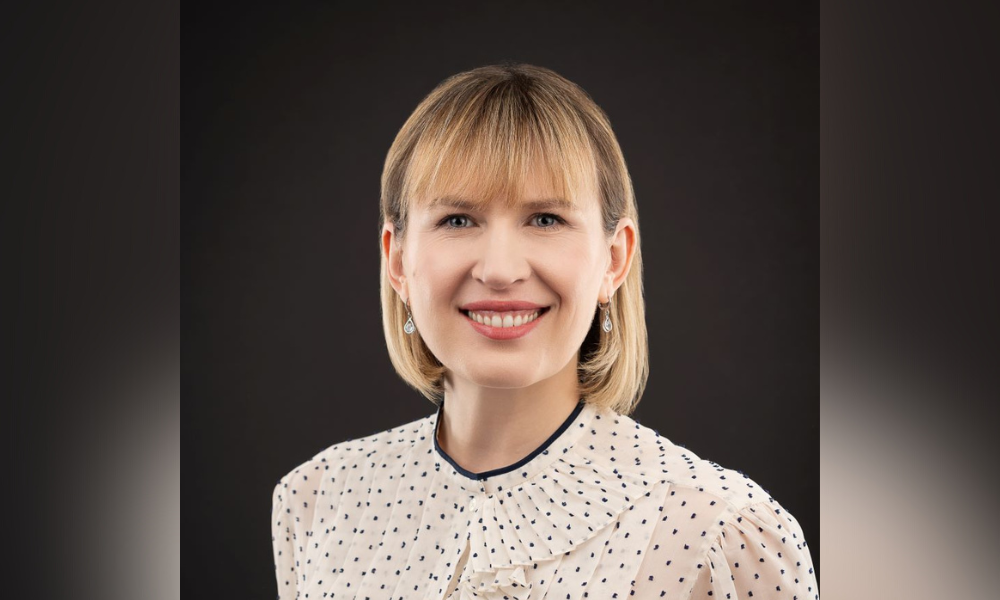Investment advisor runs down tax, estate, and legacy planning possibilities to ring in 2023

While new year’s resolutions overwhelmingly focus on health, self-care, or family time, it’s also a good time for Canadians to take a closer look at their finances, according to one financial professional.
“There are a lot of planning opportunities that have opened as of January 1,” says Ludmila Paciora, CFP, an investment advisor and financial planner at the Waterfront Group with Wellington Altus Private Wealth. “As a rule, I reach out to most of my clients at the beginning of each year to explore the different possibilities that may be available to them.”
One new development in 2023, Paciora says, is an increase in yearly contributions for TFSAs. Because of record inflation, the Canada Revenue Agency says Canadians can top up their TFSAs by $6,500 in 2023. For those who haven’t used their TFSAs since their introduction in 2009, they may now have a total contribution room up to $88,000.
Apart from the 2023 TFSA contribution bump, the CRA has announced inflation-linked adjustments to the federal income tax brackets. The lowest rate of 15% now applies to income up to $53,359, while the top marginal tax rate of 33% now applies to income over $235,675.
“I encourage clients to look at their total income for 2022, and together we review how much it would make sense for them to contribute to their RRSP,” she adds. “We want to assess it not just from a tax-optimization perspective, but also through the lens of their retirement plans.”
For Canadian couples, Paciora says it’s a good time to consider income-splitting opportunities, whether through a spousal RRSP or a prescribed loan.
“These and other tax-planning strategies should be tied to the client’s personal financial plan,” she says.
Parents can also look at their new grant eligibility for registered education savings plans (RESPs) for their children. Every year, the government will provide a grant of up to $500 per beneficiary for each $2500 contributed into a RESP. Those who weren’t able to add to an RESP in previous years may “catch up” by doubling their contributions.
“The earlier the contribution is made in a year, the more time the funds can grow tax-free within the RESP, which is why I make it part of my new-year review process for clients,” Paciora says.
A new year is also a great time for Canadians to look at their estate planning, taking stock of both recent events and upcoming milestones. That includes any plans by clients to get married, sell their business, or retire in the near future.
“If there’s a wedding coming up, it’s a good time to think about how that will impact the family, and whether they’ve considered the possibility of drafting a prenuptial agreement,” she says. “That’s a very exciting time for clients, and it can be difficult for them to think about the implications. So this is when they actually need an independent set of eyes.”
Looking further ahead, Paciora says clients should review their wills as well as beneficiaries they have assigned across their various financial documents. Changes within the family over the past 12 months – such as the birth of new children or grandchildren or shifts in family dynamics – could dramatically impact a client’s wishes.
“Recently, we saw an update to Ontario estate law through Bill 245 which brought significant changes. For example, previously, when someone gets married in the province, the marriage would automatically nullify any wills that they drafted prior to that,” Paciora explains. “Now whatever will they had prior to the marriage will stay in place, so someone who just got married must make sure it still reflects what they want.”
For Canadians who don’t hear from their advisor right away, Paciora encourages them to proactively reach out and schedule a conversation to discuss their goals, priorities, and plans for the future.
“Depending on where they are in life, they may need something more than just a one-on-one meeting,” she says. “For matters involving big life decisions, I’d recommend a meeting with different stakeholders, including family members, executors, POAs and accountants.”
Many Canadians are approaching the new year with extreme uncertainty and concern. In a recent poll of Canadians, the Angus Reid Institute found half perceive their financial situation as worse than before. A December survey by CIBC also found 65% of Canadians are concerned about inflation, while 30% cited interest rates and 24% were worried about a possible recession.
“By taking proactive steps with their advisor and maximizing all of the available planning opportunities, Canadians can be better prepared for the challenges ahead,” she says. “Instead of worries, it will be a year of excitement and new possibilities.”
Ludmila Paciora is an Investment Advisor and Financial Planner with Wellington-Altus Private Wealth (WAPW). The information contained herein is the opinion of the author and not of WAPW. This article is for informational purposes only and is not intended as investment advice. Please contact your financial advisor for advice with respect to your personal financial situation and objectives. WAPW is a member of the Canadian Investor Protection Fund and the Investment Industry Regulatory Organization of Canada.



